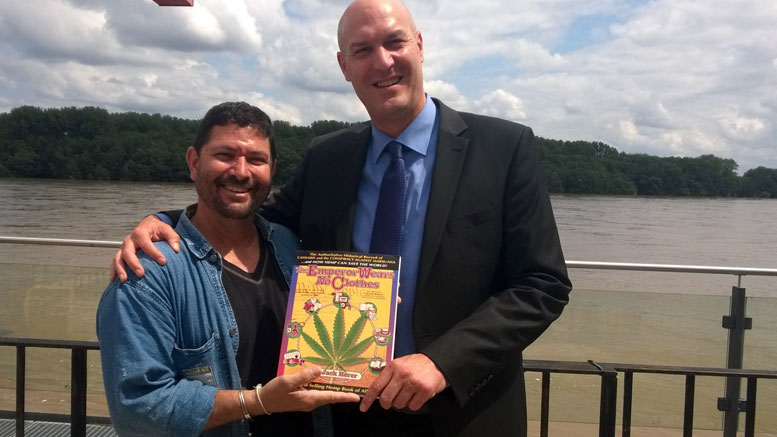Hempro International GmbH & Co. recently gave itself a birthday present, acquiring the hemp accessories brand PURE from the original creator, whose owners retired.
Now a fully mature teenager marking its 15th year, Düsseldorf, Germany-based Hempro Int. is a vertically integrated producer and wholesaler of hemp foods, textiles, accessories and cosmetics products.
Adding the PURE brand to the Hempro Int. portfolio is only the most recent milestone in a corporate history marked by careful strategic acquisitions and organic development of the company’s product line, which includes HANF FARM, its consumer brand for hemp foods. That division has been a major factor in the company’s emergence as a leading player in the European hemp market. Next to its own-brand products, Hempro Int.’s main business is industrial scale hemp foods production and bulk distribution, through which the company is meeting demand for raw materials in the fast-growing hemp foods sector in Europe and around the world.
Cosmetics sales strong
While hemp food hit its stride over the past two years – especially in Germany – Kruse says this year is showing a sharp rise in sales of cosmetics products from Hempro Int.’s THE HEMP LINE family of high-quality creams, soaps, shampoos and lotions. From January to March this year, the division, which date dates to 2001, recorded a 50% increase in sales compared to years past, Kruse said.
Like all big players in the fashion market, the company also sells a line of affordable, durable, basic hemp fashions – also under THE HEMP LINE brand – with men’s and women’s collections from both 100% hemp and hemp/organic cotton blends. That division of the company was launched in 2008.
With its acquisition of PURE, Hempro Int. strengthens its position in hemp textile-based accessories. While the company had been selling PURE bags since 2005 under a license, its knowledge of the brand, and bringing it fully in house, opens broader marketing and product development possibilities, Kruse says.
As Hempro Int. has carefully added more and more products through the years, the deal with PURE was a special one. “We have a long history with these products, their creators and the brand,” Kruse said. “So it was a natural fit. We know the owners personally, and it all went down as deals like this should, with both sides really happy in the end.”
Finding Jack Herer
Kruse first got into hemp when he read a magazine article about the plant and its possibilities back in the 1990s. Research led him to the Jack Herer book about hemp, “The Emperor Wears No Clothes” (in the German translation by Matthias Bröckers “The Rediscovery of the useful plant Hemp”), and he was hooked, recognizing the hemp industry as a perfect vehicle for his personal vision of combining ecology and business.
HanfHaus Dusseldorf, which opened its doors in 1995, was the foundation stone for Kruse’s hemp career, he said. Since that time, he has successfully navigated the sometimes treacherous path through hemp, overcoming the obstacles through determination and collaborative decision making at the strategic and management levels.
“I’d never have even thought about the kind of issues I’d be confronted with,” said Rebecca Kruse, Hempro Int.’s Co-CEO who has 10 years with the company after first joining as an intern. “For example, our product diversity is boon and bane at the same time,” she said.
“We’ve often considered letting go one of the divisions to adjust the overall business. But then we think about how much work and lifeblood we’ve invested,” she said of the often tough decisions the company has faced.
That’s aside from the day-to-day challenges of running a fast-growing business that has Hempro Int. racing to keep pace with its customers as the hemp industry itself races ahead.
Meeting the challenges
From Kruse’s perspective, 15 years of successfully managing the challenges of a hemp business puts Hempro Int. in position to fulfill the bigger vision that he started out with. “The goals must be to make the world better, greener and more sustainable, and to have economic success in doing so,” he said. “To create jobs and to generate financial independence for the company by successfully combining ecology and economy.”

